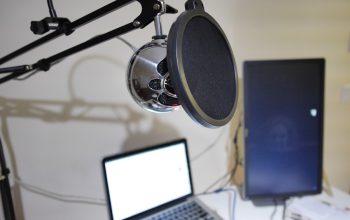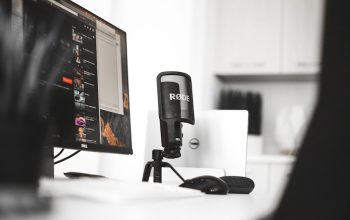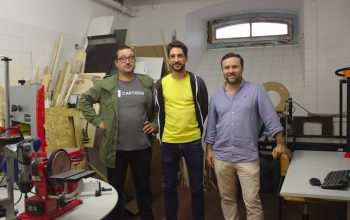In recent years, the landscape of language learning has evolved dramatically, with technology playing a pivotal role in shaping how individuals acquire new languages. Among the myriad of resources available, language learning podcasts have emerged as a particularly effective and engaging tool. These audio programs offer learners the flexibility to immerse themselves in a new language while on the go, making them an ideal choice for busy individuals seeking to enhance their linguistic skills.
The appeal of podcasts lies not only in their accessibility but also in their ability to cater to various learning styles, providing a rich auditory experience that can complement traditional study methods. Podcasts are designed to be both informative and entertaining, often featuring native speakers, language experts, and cultural insights that enrich the learning experience. This format allows learners to hear authentic pronunciation, intonation, and conversational nuances that are often absent from textbooks.
As learners tune in to episodes that cover a wide range of topics—from grammar and vocabulary to cultural anecdotes—they can develop a more holistic understanding of the language. The convenience of podcasts means that learners can listen during their daily commutes, while exercising, or even while doing household chores, seamlessly integrating language practice into their everyday lives.
Key Takeaways
- Language learning podcasts provide a convenient and accessible way to improve language skills.
- Using podcasts for language learning can enhance listening comprehension and pronunciation.
- Top language learning podcasts for beginners include “Coffee Break Spanish” and “Duolingo Spanish Podcast.”
- Advanced language learning podcasts like “News in Slow Spanish” and “Spanish Obsessed” can help learners achieve fluency.
- Incorporate podcasts into your language learning routine by listening during daily commutes or while doing household chores.
Benefits of Using Podcasts for Language Learning
Podcasts in Language Learning: Unlocking Real-Life Language Usage
Exposure to Authentic Conversations
One of the most significant advantages of using podcasts for language learning is the exposure to real-life language usage. Unlike traditional classroom settings where learners may be confined to scripted dialogues, podcasts often feature spontaneous conversations that reflect how people actually communicate. This exposure helps learners grasp colloquial expressions, slang, and idiomatic phrases that are essential for achieving fluency.
Personalized Learning Experience
Furthermore, the diverse range of topics covered in podcasts allows learners to engage with content that interests them, making the learning process more enjoyable and motivating. Another benefit is the ability to learn at one’s own pace. Podcasts can be paused, rewound, or replayed as needed, allowing learners to revisit challenging sections or clarify misunderstandings.
Flexibility for Auditory Learners
This flexibility is particularly beneficial for auditory learners who may find it easier to absorb information through listening rather than reading. Additionally, many podcasts offer transcripts or supplementary materials that can further enhance comprehension and retention. By combining auditory input with visual aids, learners can reinforce their understanding and improve their overall language skills.
Top Language Learning Podcasts for Beginners

For those just starting their language learning journey, several podcasts stand out as excellent resources. “Coffee Break Languages” is a popular choice among beginners, offering a series of bite-sized lessons in various languages such as Spanish, French, and Italian. Each episode is structured around practical conversations and cultural insights, making it easy for learners to grasp essential vocabulary and phrases.
The hosts’ engaging teaching style and clear explanations create a welcoming environment for newcomers. Another noteworthy podcast is “Pimsleur Language Programs,” which employs an audio-based method that emphasizes listening and speaking skills. The Pimsleur approach focuses on repetition and active recall, allowing beginners to internalize new vocabulary and sentence structures effectively.
Each episode builds upon previous lessons, ensuring that learners gradually develop their language proficiency without feeling overwhelmed. The combination of structured lessons and real-world application makes this podcast an invaluable resource for those embarking on their language learning journey.
Advanced Language Learning Podcasts for Fluency
| Podcast Episode | Topic | Duration | Difficulty Level |
|---|---|---|---|
| 1 | Conversational Phrases | 30 minutes | Intermediate |
| 2 | Idioms and Expressions | 25 minutes | Advanced |
| 3 | Grammar in Context | 35 minutes | Intermediate |
As learners progress beyond the beginner stage, they may seek out more advanced podcasts that challenge their skills and promote fluency. “News in Slow [Language]” is an excellent option for advanced learners looking to stay informed while honing their language abilities. This podcast presents current events in a slower-paced format, allowing listeners to absorb complex vocabulary and nuanced expressions without feeling rushed.
The hosts often provide context and explanations for difficult terms, making it easier for learners to engage with the material. For those interested in cultural immersion alongside language learning, “The Fluent Show” offers a unique blend of interviews with polyglots and language enthusiasts who share their experiences and tips for mastering multiple languages. This podcast not only provides valuable insights into advanced language acquisition strategies but also fosters a sense of community among listeners.
By hearing from others who have successfully navigated the challenges of language learning, advanced learners can find inspiration and motivation to continue their journey toward fluency.
How to Incorporate Podcasts into Your Language Learning Routine
Integrating podcasts into a language learning routine requires intentional planning and consistency. One effective approach is to designate specific times during the week for podcast listening. For instance, learners might choose to listen during their morning commute or while preparing meals in the evening.
Additionally, it can be beneficial to set specific goals for each listening session. For example, learners might aim to focus on understanding key vocabulary or identifying grammatical structures within an episode.
Taking notes during or after listening can also enhance retention and comprehension. By jotting down new words or phrases and reviewing them later, learners can solidify their understanding and incorporate these elements into their own speech.
Tips for Maximizing Your Language Learning with Podcasts

Active Listening for Better Retention
One effective technique is active listening, which involves fully concentrating on the content rather than passively absorbing information. This can be achieved by pausing the podcast at intervals to reflect on what has been said or by summarizing key points aloud after each segment.
Supplementary Materials for Deeper Understanding
Another useful strategy is to engage with supplementary materials related to the podcast episodes. Many podcasts provide transcripts or additional resources that can deepen understanding and reinforce learning. By reviewing these materials alongside the audio content, learners can clarify any uncertainties and solidify their grasp of new concepts.
Discussion and Practical Application
Furthermore, discussing podcast content with fellow learners or language exchange partners can foster deeper comprehension and provide opportunities for practical application.
Overcoming Common Challenges in Language Learning with Podcasts
While podcasts offer numerous advantages for language learners, they are not without challenges. One common issue is the potential for overwhelming vocabulary or complex sentence structures that may discourage beginners. To address this challenge, learners can start with podcasts specifically designed for their proficiency level before gradually transitioning to more advanced content.
Additionally, using tools like slow playback features or transcripts can help demystify difficult sections. Another challenge is maintaining motivation over time.
To combat feelings of stagnation or frustration, learners should celebrate small victories along the way—whether it’s mastering a new phrase or successfully following a conversation in a podcast episode. Setting achievable milestones can provide a sense of accomplishment and keep motivation levels high.
The Future of Language Learning Podcasts
As technology continues to advance, the future of language learning podcasts looks promising. Innovations such as interactive audio experiences and personalized content delivery are likely to enhance the effectiveness of podcasts as educational tools. With the rise of artificial intelligence and machine learning, we may see tailored recommendations based on individual learner preferences and progress.
Moreover, the growing popularity of podcasts suggests that they will remain a staple in the language learning community for years to come. As more educators and linguists recognize the value of auditory learning experiences, we can expect an influx of high-quality content catering to diverse languages and proficiency levels. This evolution will undoubtedly enrich the landscape of language acquisition, making it more accessible and engaging for learners around the globe.
If you are interested in exploring more educational podcasts, you should check out the Education Podcast Network. One article that caught my attention is “Hello World,” which discusses the impact of technology on education. This article provides valuable insights into how technology can enhance the learning experience, which can be particularly relevant for language learning podcasts. You can read the article here.
FAQs
What are language learning podcasts?
Language learning podcasts are audio programs designed to help people learn a new language or improve their language skills. They typically include lessons, conversations, and vocabulary exercises in the target language.
How can language learning podcasts help with language acquisition?
Language learning podcasts can help with language acquisition by providing exposure to the target language, improving listening comprehension, expanding vocabulary, and offering cultural insights. They also allow learners to practice pronunciation and speaking skills.
What are the benefits of using language learning podcasts?
Some benefits of using language learning podcasts include the flexibility to listen and learn at any time, the ability to repeat lessons as needed, access to native speakers and authentic language usage, and the opportunity to learn on the go.
Are there different types of language learning podcasts available?
Yes, there are different types of language learning podcasts available, including beginner, intermediate, and advanced levels. Some podcasts focus on specific language skills such as grammar, vocabulary, or pronunciation, while others may center around cultural topics or travel phrases.
How can I find language learning podcasts for a specific language?
You can find language learning podcasts for a specific language by searching on podcast platforms such as Apple Podcasts, Spotify, or Google Podcasts. You can also search online for language learning resources and websites that curate language learning podcast recommendations.



